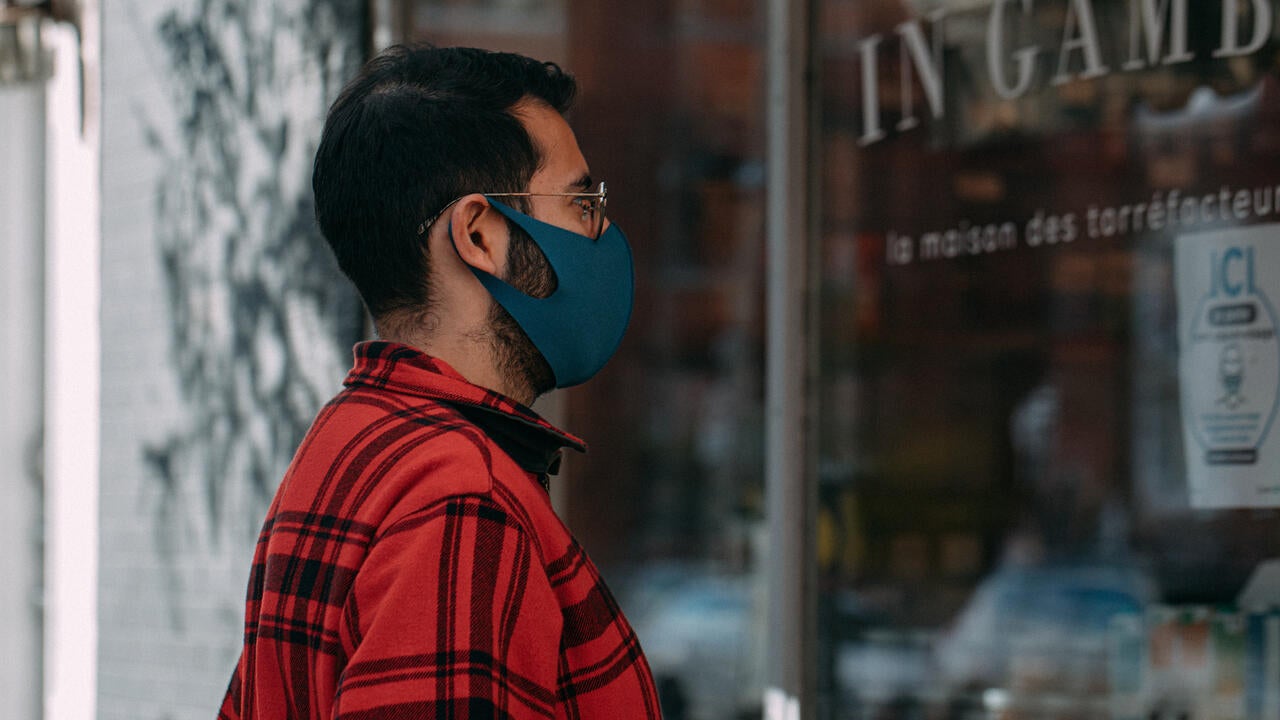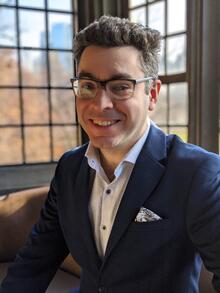
Forecasting a post-pandemic world
Behavioural, political and social scientists offer predictions and advice for navigating COVID-19

Behavioural, political and social scientists offer predictions and advice for navigating COVID-19
By University RelationsAfter a long year of dealing with the global COVID-19 pandemic, and with vaccines rolling out across the globe many are looking ahead to the post-pandemic world. But the challenges and changes to our lives are expected to continue into 2021, highlighting the need to find ways to boost our pandemic perseverance.
 With this in mind, Igor Grossmann, a professor of Psychology at Waterloo, brought together more than 50 of the world's leading behavioural, political and social scientists to build the World after COVID project. The team asked these experts in human behaviour and human societies two questions: what are their predictions for the future and what recommendations they could offer to help us make it through the pandemic?
With this in mind, Igor Grossmann, a professor of Psychology at Waterloo, brought together more than 50 of the world's leading behavioural, political and social scientists to build the World after COVID project. The team asked these experts in human behaviour and human societies two questions: what are their predictions for the future and what recommendations they could offer to help us make it through the pandemic?
“Journalists, pundits, politicians, medical scholars and regular people are making countless predictions about the “new normal” in the world after COVID. It’s less common to hear the diverse views of behavioural and social scientists,” says Grossmann. “This project aims to fill the gap.”
Participating scientists were nominated by an advisory board based on their expertise. In total, 57 scientists from more than ten countries agreed to take part, including past or present presidents of the Association for Psychological Psychology, American Psychiatric Association and Human Behavior and Evolution Society, American Psychological Association, Psychonomic Society and International Association for Cross-cultural Psychology.
Grossmann’s project team in the Wisdom and Culture Lab was confronted with a diverse set of recommendations. In total, there were 24 unique suggestions of wisdom that people need right now, with most mentioned by only a handful of people. But researchers identified the four key pieces of advice that came up most frequently.
Embracing and maintaining social connectedness was the most common recommendation from the experts. It’s grounded in empirical research showing that connecting with others has significant positive impacts on our mental health. Researchers suggested finding ways to bond with others while maintaining physical distance, like creating new traditions with family and trying to keep up relationships with friends.
The experts also spotlighted the need for optimism and recommended approaching the road ahead with hope, pointing to previous pandemics and how people, society and the economy have recovered.
Drawing on the old adage, several experts argued that “the pandemic is not a sprint, but a marathon,” and encouraged long-term goal setting. They provided examples of goals both at the personal and wider societal level, from learning from mistakes to working on personal relationships to benefit long-term health, to addressing issues around wealth inequality and racial discrimination.
Finally, respondents encouraged establishing a sense of agency by focussing on what you can control and making intentional changes. This mindset has been shown to help regulate negative emotions, especially in the face of uncertainty. The experts’ recommendations included creating new rituals, structures and/or habits that can help compensate for unplanned changes to your external structure (like working from home, for example).
In addition, experts offered their recommendations for ways that individuals and societies might mitigate the long-term negative changes brought about by the pandemic and to sustain any possible positive changes.
Each of the experts was asked five standardized questions, including what major changes to social life we might see in response to the pandemic. While some themes were repeated, Grossmann and his team found that the majority of these forecasts were unique. And these changes brought about by COVID-19 were both positive and negative, with many respondents presenting both sides of each topic.
“Close to half of the experts were dialectical in their forecasts: they suggested the same consequence of the pandemic can have both negative and positive impacts. This suggests substantial complexity and uncertainty in predictions, even among the world’s scientific elite,” says Grossmann.
In total, the interviews identified more than 60 themes, offering a time capsule of scientists’ predictions at this moment in human history.
The World After COVID project is part of the larger Behavioral and Social Science Forecasting Collaborative, founded to systematically evaluate how scientists reflect on unfolding societal changes and the accuracy of forecasts and reasoning behind them. The group has been gathering predictions from a range of teams since May 2020 and will release the results of the first year-long competition in Spring 2021.

Read more
Urban engineering chair argues we have a golden opportunity to do it right, with a concerted effort, when we do go back to a new normal

Read more
Computer science students are applying big data practices to predicting the cease of COVID cases in Canada

Read more
Leaders at Waterloo Innovation Summit share insights on the critical role innovation and entrepreneurship will play in driving the future economy of Canada
The University of Waterloo acknowledges that much of our work takes place on the traditional territory of the Neutral, Anishinaabeg, and Haudenosaunee peoples. Our main campus is situated on the Haldimand Tract, the land granted to the Six Nations that includes six miles on each side of the Grand River. Our active work toward reconciliation takes place across our campuses through research, learning, teaching, and community building, and is co-ordinated within the Office of Indigenous Relations.